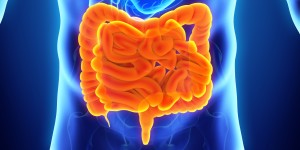Millions of Americans suffer from opioid addiction. Unfortunately, prolonged use of opioids can have a serious but rarely discussed consequence: constipation. Opioid induced constipation (OIC) affects a large number of people who use prescription opioid painkillers. This condition negatively impacts quality of life, making it important to find a successful solution to opioid-induced constipation.
What Is Opioid Induced Constipation?

OIC Opioid Induced Constipation – Rapid Detox by the Waismann Method
Under normal circumstances, the smooth muscle lining the walls of your intestines rhythmically contracts to push mass through. Stool collects in the colon until it is expelled. Certain situations, such as low fluid intake, decreased physical activity, or poor fiber consumption, can contribute to constipation. These factors decrease the amount of mass in the bowel and result in suboptimal intestinal contraction.
Opioid induced constipation, or OIC, is a side effect of opioid use. It is characterized by significantly reduced frequency of bowel movements. Furthermore, stool may become hard and difficult to pass. Symptoms of OIC include:
- Straining to pass stool
- Lower intestinal pain
- Cracked or dry stool
- Bloating
- Nausea
- Pain when passing stool
How Opioids Cause Constipation
When thinking about the effects of opioids, we often focus on the central nervous system. The brain is full of opioid receptors that respond when a person takes prescription painkillers or heroin. These receptors alter brain activity to make it more likely that a person will continue to take the drugs.
However, the nervous system of the intestines is also an incredibly rich network. It is sometimes even called the “second brain”. The gastrointestinal nervous system, often known as the enteric nervous system, consists of 500 million neurons. Many of these neurons have opioid receptors that respond to signals from opioid molecules.
Opioids act on the enteric nervous system in several ways. The combined action of opioids is what leads to OIC. For example, opioids have the following effects on the digestive system:
For over 26 years, people from all over the world have chosen Waismann Method as their opioid detox provider.
We know the challenges you face and the importance of creating a unique and personal experience for you right from the start.Call for Detox Options 1-800-423-2482
- Delayed gastric emptying. The stomach empties its contents at regular intervals, providing plenty of material for the intestines to process. Opioids slow this process and prevent foods from entering the digestive tract.
- Increased non-propulsive and decreased propulsive movements in the small intestine. Certain muscle movements serve to push material through the intestines. Opioids actually increase non-propulsive movements that keep digestive material stuck in the bowels. At the same time, propulsive movements grow less frequent.
- Decreased secretion of digestive fluids. Various organs secrete fluids that promote the process of digestion. Opioids inhibit this secretion, preventing the intestines from fully digesting food.
- Decreased defecation urge. We all know that “gotta go” feeling when it is time to defecate. Opioids inhibit the body’s ability to signal the need to pass stool. This causes a further backlog of material in the intestines that is not effectively passed.
Combined, these effects prevent the body from effectively passing solid waste. The result is OIC, which can significantly reduce quality of life.
The Importance of Gut Health and Choosing Effective Pain Management
Scientists continue to discover ways in which the gut influences overall human health. Our guts are home to millions of bacteria that promote immune system functioning, reduce risk of disease, and facilitate digestion. When the gut is out of balance, the entire body suffers.
People suffering from OIC have unhealthy guts. Although several medications for OIC are now available, these simply cover up the underlying problem. The true problem is extended reliance on opioids for pain management. Adding another set of pills cannot restore true balance and health to the gut.
One effective approach is to undergo opioid detox to cleanse the body of opioid molecules. Then, the doctor may explore alternative pain management approaches. Medical professionals have developed several effective pain management techniques that have advantages over chronic use of opioid painkillers. These alternative pain management strategies eliminate the risk of addiction to opioid painkillers. At the same time, they prevent opioid induced constipation, improving quality of life and overall gut health.
Sources
All About Opioids and Opioid-Induced Constipation (OIC), Medical News Today. Retrieved on February 26, 2016.
Function of opioids in the enteric nervous system, National Center for Biotechnology Information, U.S. National Library of Medicine. Retrieved on February 26, 2016.





